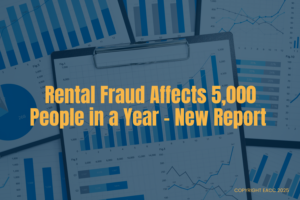After months of fevered speculation, Chancellor Rachel Reeves will unveil her autumn Budget on Wednesday 30 October.
As the announcement could have important implications for landlords, let’s consider what might be included in it.
But first, a caveat
Leaks and rumours accompany the lead-up to any major fiscal event, and this Budget – Labour’s first for 14 years – has been no different.
There has been lots of speculation including some news articles that could only be described as scaremongering.
What we know is that Labour has promised not to raise income tax, VAT or employee NI contributions.
The Government has also warned that the finances are in bad shape and the Budget could be ‘painful’ (words no one wants to hear). So, don’t expect a raft of goodies or giveaways.
However, nothing is set in stone until the Chancellor opens her red box on 30 October and presents her Budget to Parliament.
So perhaps consider not making any major decisions until you know what is happening and when. (More on this later in the piece.)
Capital gains tax (CGT)
When landlords sell a rental, they pay tax on the difference between the price they paid for the property and what they sell it for (minus ‘allowable expenses’ like repairs).
Landlords currently pay 18% (basic rate taxpayer) or 24% (higher rate taxpayer) on this profit or capital gain.
Many expect the Chancellor to raise these rates, but it’s unclear by how much. One suggestion is that they may be aligned with income tax rates.
Inheritance tax (IHT)
Currently, inheritance tax of 40% is paid on estates above the threshold of £325,000 (although there are some exemptions to these rules).
Some predict the threshold will drop – meaning more estates will pay IHT. Another suggestion is that IHT will be levied on pension pots (which are currently not subject to IHT).
Energy efficiency
The Government is pushing on with plans to make homes more energy efficient.
It has already resurrected rules (initially put forward by the Conservatives and then axed) that rental properties must have an Energy Performance Certificate rating of C by 2030.
There’s a possibility that the Budget will contain some measures to encourage landlords to get on and do this. This could be through the provision of funding grants.
Pensions
Currently, most people can withdraw 25% of their pension (up to the value of £268,275) as a tax-free lump sum when they turn 55.
However, some predict the Chancellor will scale back the size of the tax-free lump sum.
Tax relief on pension contributions could also become less generous for those on higher incomes.
Key takeaways and advice
Whatever comes out of the announcement, do not panic.
Typically, changes announced in a Budget come into force at the start of the next tax year. In this case, you’d be looking at April 2025 at the earliest.
Be wary of some of the advice on offer. For example, we’ve seen news articles explaining how landlords can sell their buy-to-let properties in 30 days (by using a quick-sell company or going to auction) to avoid CGT rises.
Such a move could result in you getting less – possibly tens or even hundreds of thousands of pounds less – for your property than if you took it to the open market.
Why take such a risk when you don’t know when or even if CGT will change?
Consider also what you would do with the funds should you sell up in a rush. Invest in stocks and shares? These can fluctuate in value (remember April’s global stock market wobble?) and are also subject to CGT.
While you don’t pay CGT on ISAs, you can only invest £20,000 a year.
The bigger picture
Bear in mind what else is happening in the economy; there are some reasons to be cheerful.
Inflation has dipped below the Bank of England’s target figure of 2%. It is now running at 1.7% – a three-year low – meaning the BoE is almost certain to cut interest rates when it meets in early November.
Meanwhile, house price growth is at a two-year high (source: Nationwide), and rental demand is strong, with private rents jumping by 8.6% last year (source: ONS).
Seek professional advice
As our tax system is so complex, always speak to a financial adviser before making big investment decisions.
You can discuss what would work best for you based on your retirement and succession plans.
It’s also worth reviewing the structure of your rental portfolio to ensure it is tax efficient.
We’ll be keeping a close eye on the Budget, so get in touch after the announcement to find out what’s changed for you.
Contact us –
Tel: 01473 214343 Email: info@pennington-online.co.uk
Or come and see us at 45 Woodbridge Road East, Ipswich, IP4 5QN






